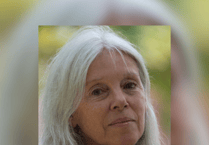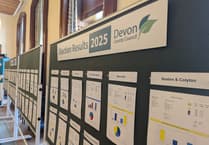Devon County Council is due to host six countries as part of a project which aims to reduce food waste.
At the beginning of July, Devon County Council will host representatives from six European countries as part of a project with the sole aim to reduce food waste, from producer to plate, as well as to influence future policy.
For every two tonnes of food eaten in the UK, one tonne is wasted. This amounts to ten millions tonnes of wasted food per year.
In Devon, food waste makes up to 24% of a household dustbin, costing £3.3 million to dispose of. The average household in Devon wastes up to £700 throwing away food each year.
The cost of food waste to the UKs hospitality and food services industry is estimated at £3 billion per year.
Led by the Mediterranean Agronomic Institute of Montpellier in France, the four-year long ECOWASTE4FOOD project is funded by Interred Europe and will identify innovative ideas and practices that have the potential to be replicated or expanded within Devon.
The project gathers local authorities and stakeholders such as businesses and university departments, from across Europe to work together and share ideas.
For the upcoming meeting, Devon County Council will welcome delegates from the Waste Agency of Catalonia, Spain; Provence Alpes Cote D’Azur, France; Wielkopolska Region, Poland; City of Ferrara, Italy; Region of Western Macedonia, Greece and Finland’s Regional Council of South Ostrobothnia.
Amongst the many ideas that Devon County Council are researching are local enterprises such as Grocycle, who grow mushrooms on spent coffee grounds and the New Lion Brewery who recently brewed beer from surplus bread, alongside tech solutions to reducing food waste such as the Olio app and online surplus redistribution platform, Takestock.
Cllr Andrea Davis, Devon County Council’s Cabinet Member for Infrastructure, Development and Waste said: “Food waste is a huge area of concern so we are delighted to be playing our part to find answers along with authorities and businesses from across Europe who are facing the same issues of increasing resource scarcity, environmental impacts and rising costs.”





Comments
This article has no comments yet. Be the first to leave a comment.